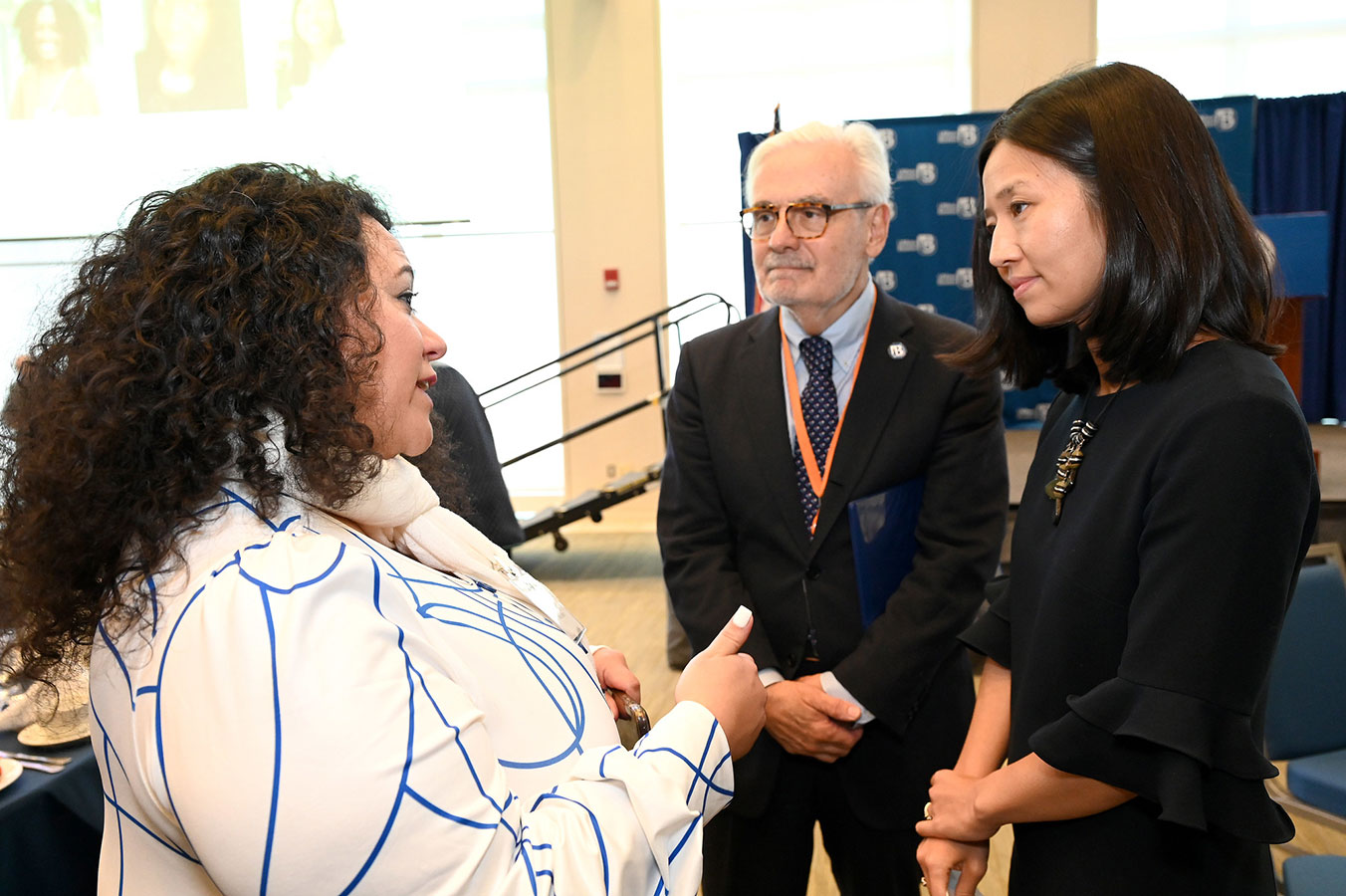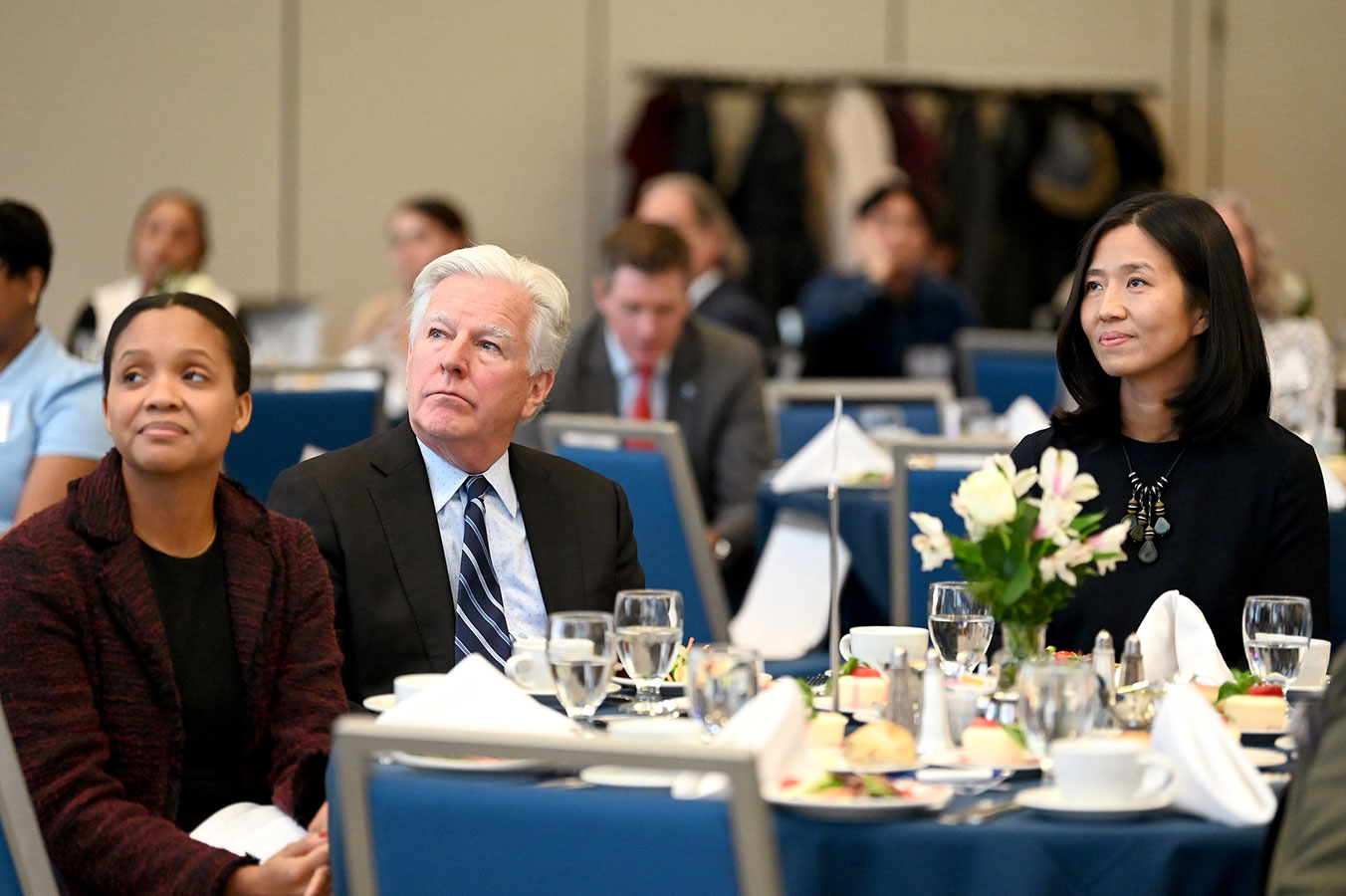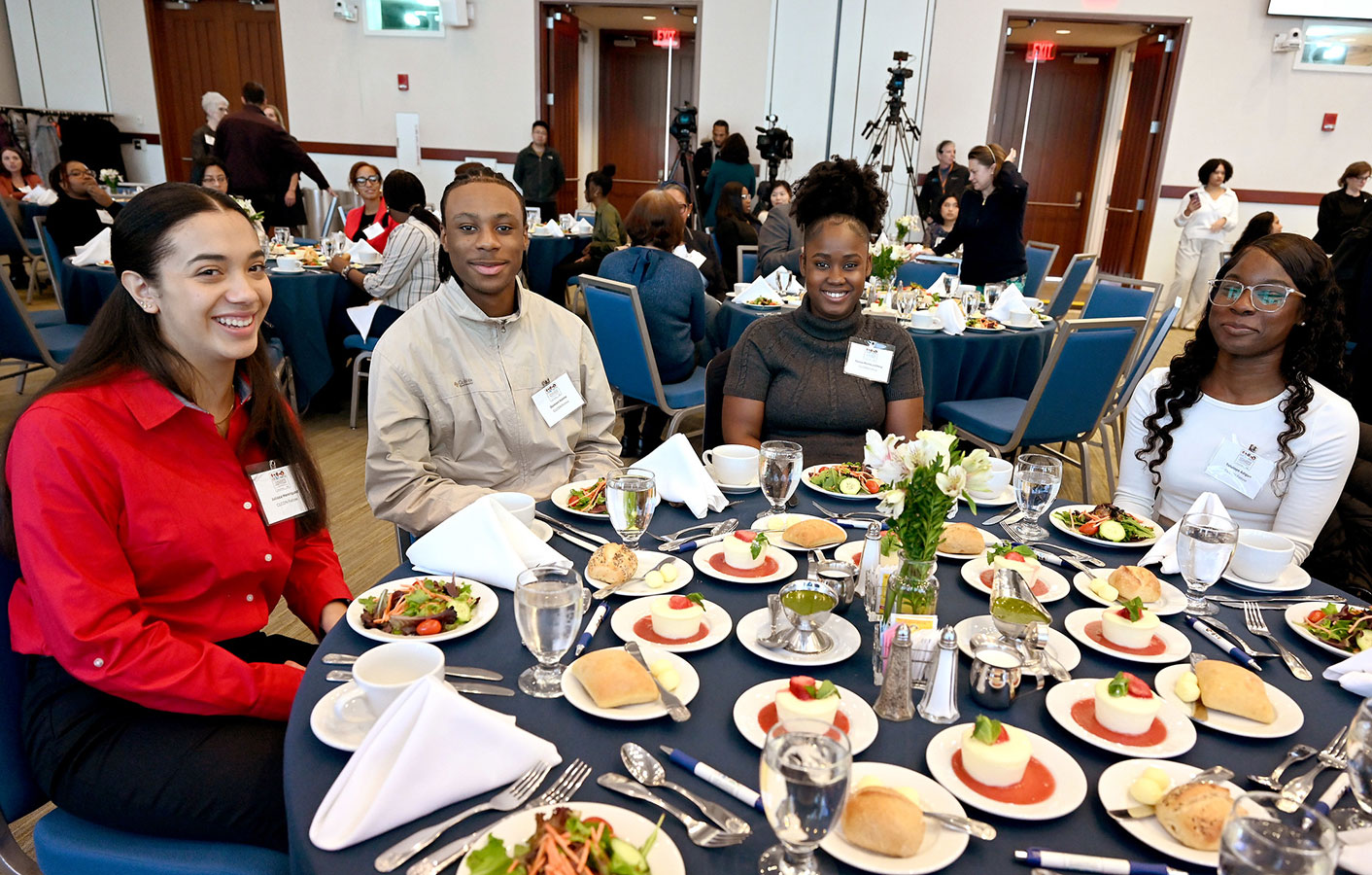- Home
- News
- Recent News
- UMass Boston, MGB Celebrate Expansion of CLCDN
UMass Boston, Mass General Brigham Celebrate Expansion of Clinical Leadership Collaborative for Diversity in Nursing, $20 Million Commitment
Over five years, 400 students will be recruited to complete the CLCDN program, removing barriers to higher education and fostering a diverse nursing workforce that mirrors the community it serves.

Rute Teixeira G’18 had been working as a clinical staff nurse for 15 years when she decided to go back to school to advance her career. She credits UMass Boston and Mass General Brigham’s Clinical Leadership Collaborative for Diversity in Nursing (CLCDN) program with enabling her to balance work and graduate school while also raising two small children.
Teixeira is a nurse practitioner at Mass General Brigham today, and a mentor for the CLCDN program.
“The support that the program provided me… was monumental, from the academic support, professional development seminars, self-marketing, resume building strategies, board preparation, and financial support,” Teixeira said. “It helped me succeed and propelled me to the finish line, graduating in 2018 and passing the boards, preparing me for today.”
Teixeira and her fellow alumni, current students and staff from Mass General Brigham and UMass Boston’s Manning College of Nursing and Health Sciences came together on December 4 to celebrate the bright future of the Clinical Leadership Collaborative for Diversity in Nursing program.
They were joined by Chancellor Marcelo Suárez-Orozco, UMass President Martin Meehan, Boston Mayor Michelle Wu, Provost Joseph Berger, and several city and state leaders and advocates, who applauded the partnership’s efforts to enhance diversity in the city’s nursing and healthcare provider pipeline. Watch the speaking program on UMass Boston's YouTube channel.

Earlier this year, the two institutions announced a $20 million investment in the CLCDN—$10 million from Mass General Brigham and $10 million from UMass Boston—with the goal to recruit and retain nursing students from underrepresented communities as they start their clinical rotations. Over five years, 400 students will be recruited to complete the program, removing barriers to higher education and fostering a diverse nursing workforce that mirrors the community it serves.
“I am delighted to be here as we open a new chapter in our partnership with Mass General Brigham and imagine the many ways it will touch individual lives and democratize our public health system here in our City of Boston and in the Commonwealth for years to come,” Chancellor Suárez-Orozco said.
President Meehan spoke of how the number one factor in improving the quality of healthcare is nursing.
“If we're going to deal with the crisis we have in our healthcare system, we have to focus on nursing programs, excellence in nursing, diversity in nursing,” Meehan said. “There isn't a nursing program in this Commonwealth or in New England or the northeastern part of the country that isn't more important to the question of having a diverse nurse workforce than UMass Boston is now.”
Mayor Wu said her administration is ready to be a partner in helping to support, create, or implement “any of the partnerships that bring together our city's major anchor institutions, and more importantly our city's community members.”
“Please count us as the strongest possible champion that we could be,” she said.

The CLCDN Fellowship provides professional and leadership development opportunities for diverse nursing students at UMass Boston who have demonstrated academic excellence, the promise of success, and leadership potential. This program is dedicated to driving transformative change in the nursing workforce, embodying the spirit of diversity, equity, and innovation.
“The CLCDN has its roots in a visionary collaboration that began in 2007 when UMass Boston’s former Dean Greer Glazer and the former Chief Nursing Officer Jeanette Ives Erickson sat down and decided that they needed to think about the workforce of the future. They shared a vision that was to support diverse UMass Boston nursing students through the end of their bachelor's degree through licensure and then into registered nurse positions at MGB,” said Gaurdia Banister, nursing and patient care services consultant and CLCDN leader at MGB.
To date, the program has supported over 100 undergraduate nursing students. This latest investment serves as a testament to the joint commitment of fostering a healthcare landscape that is not only clinically proficient but also culturally sensitive. The expansion of the CLCDN program forges a sizable path toward an inclusive, equitable, and proficient future for nursing, where diversity is celebrated, leadership is cultivated, and nursing's role is solidified in shaping health equity.
Speakers included Jessica Whiteley, senior associate dean for academic affairs in MCNHS; Massachusetts Secretary of Labor and Workforce Development Lauren Jones; Everett Handford, regional administrator of the U.S. Department of Health and Human Services; Erin Flanigan, senior vice president of talent at MGB; and Anna Brown, senior vice president and chief diversity, equity & inclusion officer at MGB.
Brown said the need is so pressing right now for greater diversity in the healthcare industry.
“There’s a great deal happening as we know in the country and around the world, and to be the best healers that we can be we need diversity in our workforce. This helps us to get closer to achieving those goals,” Brown said. “Nurses are key to the healthcare team. It's very important for our patients to see themselves reflected in those who are delivering care. We know it gives them confidence, that it has an impact on their willingness and their ability to share… all of that impacts their outcomes and their experiences. I've seen the benefits of having healthcare workers who reflect the communities that they serve firsthand.”
